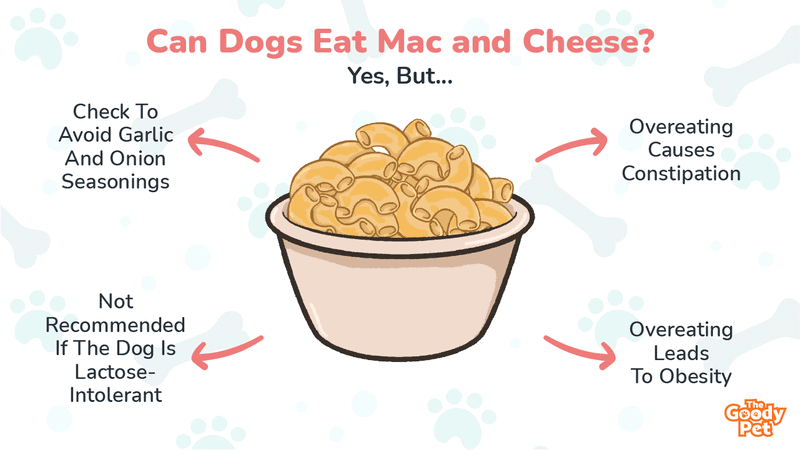Dogs like the taste and smell of mac and cheese and won’t hesitate to eat some when given the opportunity. If they accidentally find this treat, pooches will gladly consume it. But the safety of your pooch matters more than any dog treat, which is most likely why you’re here. So, can dogs eat mac and cheese?
Yes, dogs can eat mac and cheese. But there are various factors to consider before feeding mac and cheese to dogs. In small amounts, this treat won’t hurt your furry friend unless your dog is lactose intolerant. But even dogs without lactose problems should not overeat mac and cheese. Too much could cause digestion issues like constipation.
If you’re reading this article to understand the health implications of mac and cheese for your dog, you are likely a sensitive and caring owner. The good news is that you have come to the right place to learn about this topic. In this article, we’ll cover both the dangers and potential benefits of mac and cheese for dogs. To ensure your dog eats an appropriate serving size with only dog-safe ingredients, we’ll also include recipes with recommended portions for your pup. First, let’s review common ingredients in mac and cheese and how they affect our furry friends.
What If My Dog Eats Mac And Cheese?
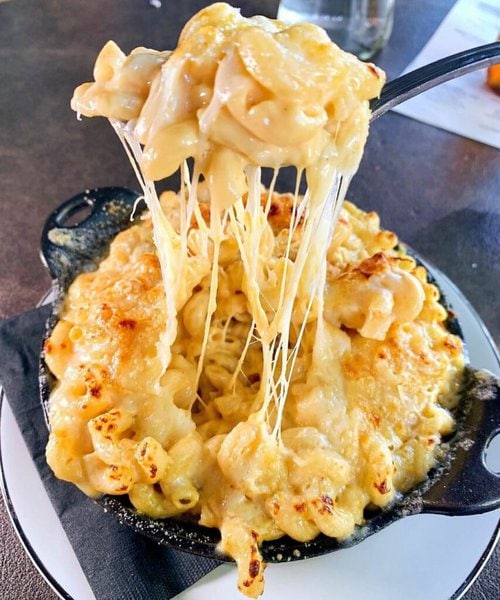
There is no cause for alarm if most dogs accidentally eat mac and cheese. You should only be concerned if your pooch has certain health issues that might be complicated by eating cheese, like lactose intolerance.
Nutritional Value Of Mac And Cheese
Macaroni and cheese are a recipe enjoyed worldwide: a combination of boiled pasta and melted cheese to create a rich and creamy cheese sauce, which many will find delicious and comforting. Just like humans, dogs enjoy mac and cheese and won’t mind eating it every day if allowed.
However, do not give dogs mac and cheese daily because this dish doesn’t contain the following vital nutrients:
- Protein
- Carbohydrates
- Vitamins
So mac and cheese cannot be a substitute for the regular meals you give your furry friend. The majority of nutritional value comes from ingredients such as butter and milk. Some boxed versions of mac and cheese contain a substance called “phthalates.” Do not allow dogs to eat any food containing phthalates.
Phthalates are found in soaps, plastics, and rubbers. But some people add it to processed mac and cheese to enhance appearance. If they consume food with phthalates, dogs could experience serious health issues.
Consuming phthalates correlates to cancer. This link to cancer is the reason some dog owners don’t allow their pooches to eat boxed mac and cheese.
It is normal to be concerned as a dog owner because you don’t want your dog to develop cancer. Yet, this does not mean that you should never allow your pooch to eat mac and cheese, which is creamy and delicious. You can expect some tail-wagging satisfaction when you offer this occasional treat to your dog.
Is Mac And Cheese OK For Dogs?
Examine the ingredients in mac and cheese to learn whether it is safe for your dog. Most mac and cheese recipes include the following ingredients:
- Wheat
- Sugar
- Cheese powder ingredients
Most boxed or processed mac and cheese contain wheat pasta, which contains gluten.
Some dogs are gluten-sensitive and may have digestive issues if they consume mac and cheese. So it is vital that you’re aware if your dog has gluten sensitivity to know whether this dog treat is safe.
Dogs usually struggle to digest sugar because their digestive system is not as efficient as ours. Their digestive systems are typically slow in processing sugar. So giving your pooch mac and cheese regularly is a bad idea. Dogs’ digestive systems break down sugar to glucose but start storing sugar as fat if not digested quickly.
The end result is that your pooch gains unhealthy weight, which can lead to obesity. You will not be happy to see your pooch in this condition. Obesity leads to other various health problems, such as diabetes, so it is important to feed your dog a healthy diet.
Can Mac And Cheese Kill Dogs?
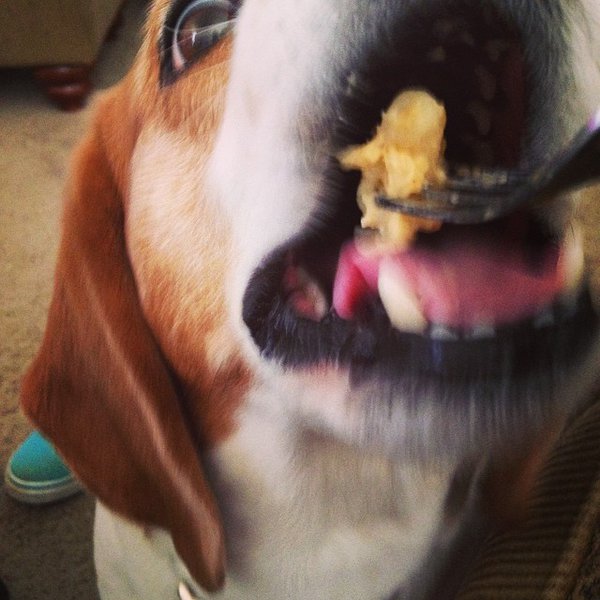
Mac and cheese cannot directly kill your dog because it is not poisonous. Nonetheless, you have to watch out for the health of your pooch.
Health Risks Of Mac And Cheese For Dogs
Certain health problems can affect your dog’s reaction to eating mac and cheese, causing problems and, in extreme cases, leading to death.
Such health problems include the following:
- Food allergies
- Weight gain
- Toxicity
Allergies
It is vital to be familiar with your dog’s health history and allergies. Some pooches are gluten intolerant and/or lactose intolerant. Mac and cheese contain both gluten and lactose.
Gluten is found in pasta, while lactose is in dairy products, including cheese. So, eating mac and cheese could be disastrous if your dog is lactose-intolerant or gluten intolerant. Some symptoms of allergic reactions include constipation, rashes, and gas.
If you notice these signs after giving mac and cheese to your pooch, stop feeding it to them. Monitor your dog for severe reactions and, if necessary, take them to a vet. It is best to talk to a vet as soon as possible for further examination, treatment, and recommendations.
Digestive Issues
As a dog owner, it is critical to be aware that dogs’ digestive systems are not as powerful as people’s, meaning your canine cannot eat all foods that humans eat. For example, human foods that contain onion and garlic can harm dogs considerably.
So, just because your dog may want to eat mac and cheese every day doesn’t mean you should indulge your pup. Even if your dog is not gluten-tolerant and/or lactose-tolerant, too much mac and cheese can still cause digestive problems like constipation.
Weight Gain
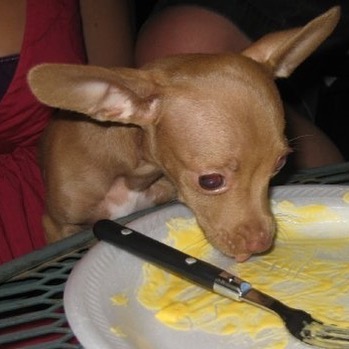
As explained earlier, dogs struggle to process sugar. Their digestive systems convert sugar to glucose. But if they eat too much sugar, their bodies store it as fat. Consequently, your pooch will gain unhealthy weight, which can lead to obesity.
Meanwhile, obese dogs have weak immune systems and can easily become sick. You definitely do not want your furry friend to experience this.
Therefore, it is recommended that you make mac and cheese a treat your dog enjoys only once in a while. This is the best way to ensure that your pooch does not experience complications from eating mac and cheese.
Toxicity
Though most mac and cheese recipes are safe for dogs in small portions, always be careful to read the ingredients before feeding mac and cheese to your pooch. Some boxed mac and cheese contain garlic and onions for seasoning.
Such recipes may result in a better smell and taste but can be dangerous to your pooch’s health. Your dog does not have the ability to process these seasonings, which can cause digestive issues, such as constipation and other health problems.
Cancer
Artificial ingredients in boxed mac and cheese can also be injurious to dogs’ health. Some ingredients can cause cancer, which is a severe sickness that you do not want your furry friend to experience. Many artificial ingredients are added for preservative purposes.
Phthalates are one of the most common additives. To preserve your dog’s health, read the ingredients list and look for additives in the mac and cheese before feeding it to your dog.
Can Dogs Eat Mac And Cheese Safely?
Safety is the most important factor to consider before giving your dog any new meal or treat. The good news is most pooches can safely eat mac and cheese in small portions.
The Right Way To Feed Dogs Mac And Cheese
Your dog can enjoy the creamy and delicious taste of mac and cheese without health complications when you consider the following tips:
- Prepare homemade mac and cheese
- Serve a small amount
- Avoid giving mac and cheese to your dog daily
Prepare Homemade Mac And Cheese
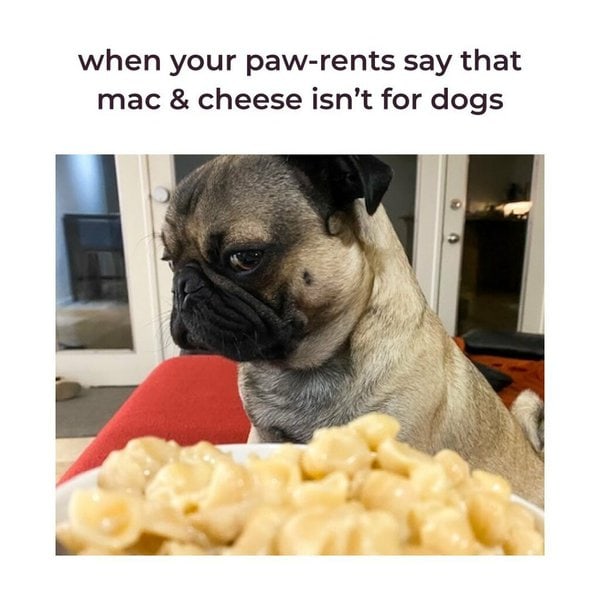
Instead of ruling out boxed mac and cheese because of the fear of cancer, consider learning how to make it at home to control the ingredients. This approach enables you to ensure that substances such as phthalates, garlic, and onion, which can hurt dogs, are absent.
The following steps will help you in this regard:
- Drain the pasta after boiling it.
- Use a combination of butter and starch to make the cheese sauce and whisk in the milk product.
- Cook until it is nice and thick.
- Add shredded cheese and stir.
- Add cheese sauce to the cooked pasta.
- Transfer to a baking dish.
- Bake and enjoy.
Serve A Small Amount
Regardless of your dog’s health status, we recommend feeding only a small quantity of mac and cheese to your pooch. Even a healthy dog might struggle to digest excessive quantities of this treat, which can trigger different health problems such as digestion issues.
Start with small quantities, especially if your pooch has never had mac and cheese. Closely observe your dog’s reaction to this dog treat. If your dog displays allergic reaction symptoms, such as rashes and gas, after having mac and cheese, consider other food options and talk to a vet before feeding them more.
Avoid Feeding Mac And Cheese To Your Dog Daily
Mac and cheese work best as an occasional treat. If you start serving it to your dog daily, you are only endangering the health of your pet. Mac and cheese do not contain the daily nutritional requirement for dogs because it does not contain the necessary protein and carbohydrates.
Therefore, there is no benefit to giving this treat to your dog every day. Your pooch may struggle to digest mac and cheese if they eat too much. This can lead to health problems such as constipation. So, only let your canine have this dog treat once in a blue moon.
Healthy Alternatives To Mac And Cheese

Here are some great options you can consider instead of mac and cheese to preserve the health of your canine:
Apples
Some of the health benefits of apples for dogs include clean teeth and fresh breath. This healthy snack will offer your dog more nutritional value than mac and cheese because it is a fruit. It is natural and delicious. Yet, your canine should avoid eating the seeds and the core of this fruit because it contains cyanide, which can hurt your dog.
Bananas
Just like apples, bananas are natural treats packed with nutrients. Yet, it is vital that your dog does not consume the skin of this fruit because it can lead to stomach upset. This problem arises from the incapability of pooches to digest banana skins.
Strawberries
Fresh strawberries will delight your dog any time. Ensure that you wash them to avoid stomach upset. It is also important that you freeze them before giving them to your canine. This approach makes it easier for your pooch to digest them.
Oranges
Dogs enjoy the fleshly parts of oranges. They are rich in vitamin C, which boosts the immune system of your pooch. Nonetheless, it is recommended that your canine does not consume oranges every day because of the high sugar content, which might cause your pooch health problems in the long run.

